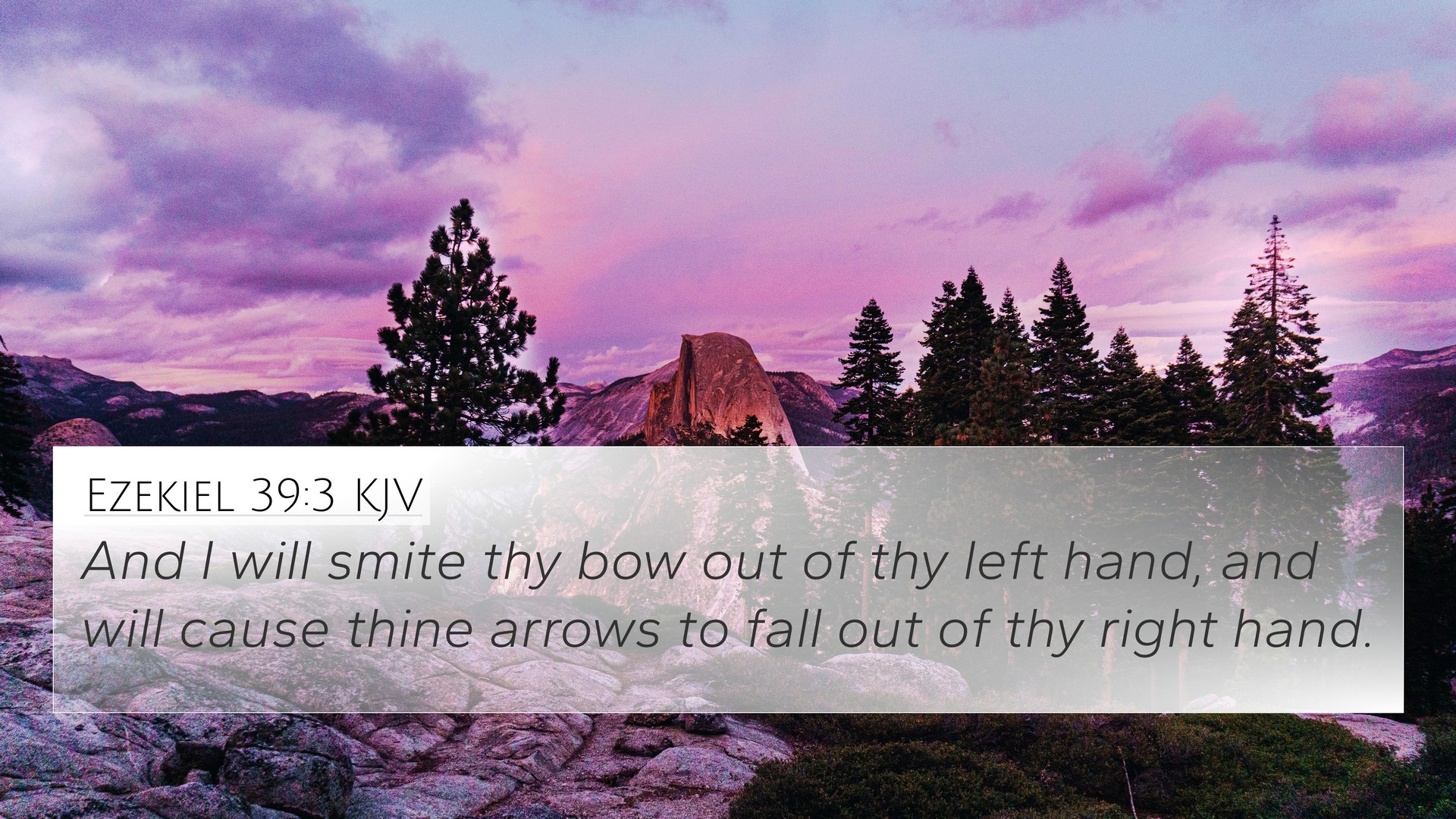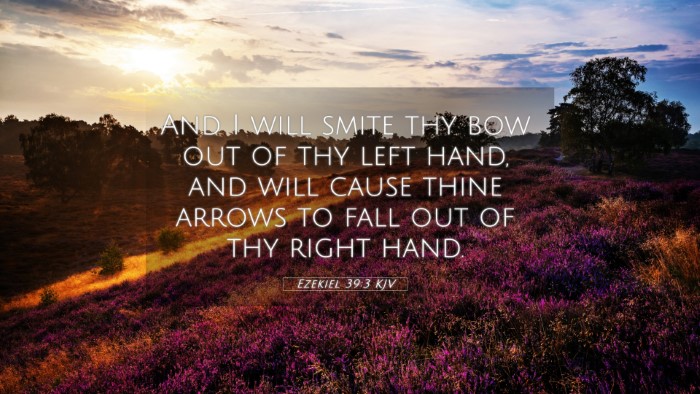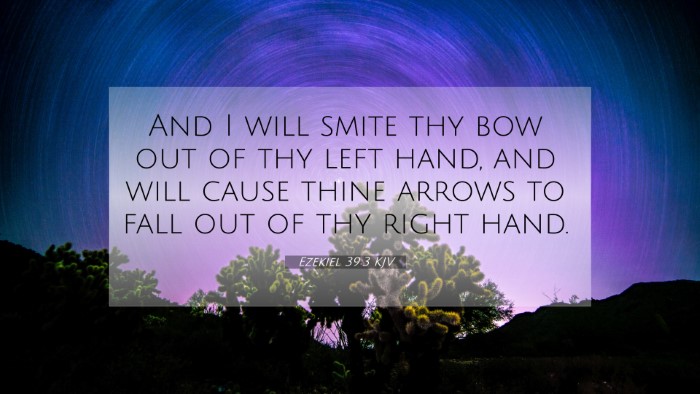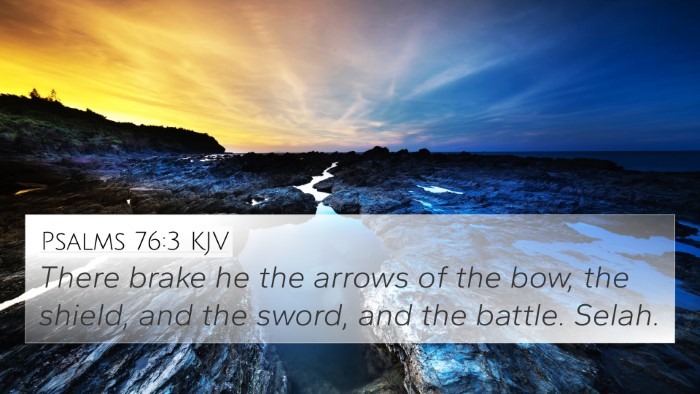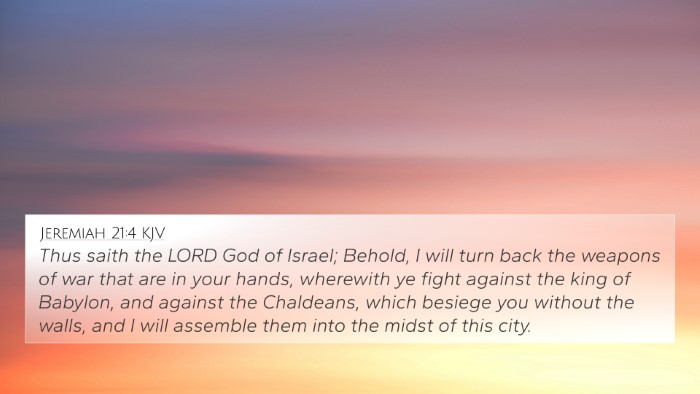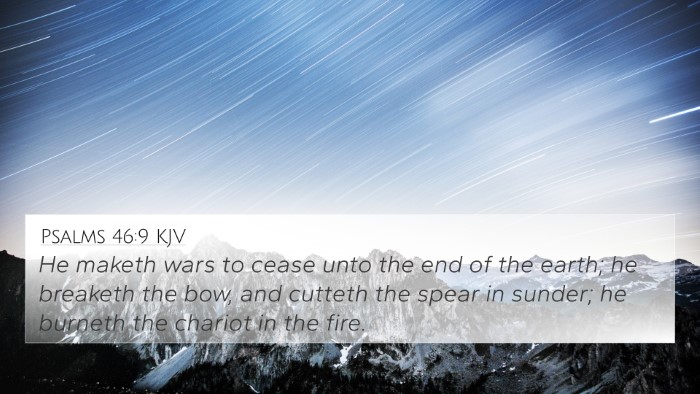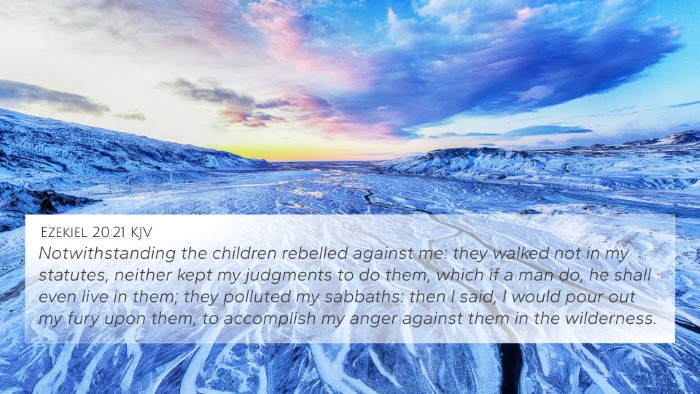Ezekiel 39:3 - Summary and Interpretation
Ezekiel 39:3 states, "And I will smite thy bow out of thy left hand, and will cause thine arrows to fall out of thy right hand." This verse encapsulates a powerful message regarding divine intervention and the defeat of enemies. In the context of Ezekiel's prophecy against Gog and Magog, it serves as a testament to God's sovereignty in the face of opposition.
Contextual Background
The book of Ezekiel is rich in apocalyptic visions and prophecies, primarily addressing the Israelites who were exiled in Babylon. The passages leading to Ezekiel 39 describe a climactic battle where God decisively reveals His power.
Significance of the Passage
The bow and arrows metaphorically represent the military strength and might of Gog, attempting to invade Israel. God, however, counters this force, emphasizing His ultimate control over both nations and opposition.
Commentary Insights
-
Matthew Henry: Highlights the assurance given to Israel that their enemies will not prevail, showcasing God's ability to disarm the adversary. This reflects not only physical warfare but symbolically indicates the spiritual battle God fights on behalf of His people.
-
Albert Barnes: Points out the significance of the bow being stricken from the left hand and the arrows falling. This illustrates that the power of enemies can be rendered ineffective by divine authority, reinforcing the theme of dependence on God for deliverance.
-
Adam Clarke: Elaborates on the supernatural nature of God's intervention, asserting that human efforts against God's plan will ultimately fail. The emphasis is on the futility of reliance on one's weapons or strategies when in opposition to God's will.
Connections with Other Bible Verses
The themes present in Ezekiel 39:3 resonate throughout scripture, particularly in the concepts of divine protection and victory over adversaries. Below are relevant cross-references that further elucidate the message of this verse:
- Psalms 46:9-10: "He makes wars cease to the ends of the earth; he breaks the bow and shatters the spear." - This verse parallels the act of God disarming nations as He does in Ezekiel 39:3.
- Isaiah 54:17: "No weapon formed against you shall prosper." - Reinforces God's promise of defense for His people.
- Zechariah 9:13: "When I have bent Judah for me, filled the bow with Ephraim..." - This illustrates the symbolic significance of bows in both offense and defense.
- Revelation 19:11-16: The ultimate victory of Christ as a warrior, symbolizing divine intervention in human conflicts.
- Romans 8:31: "If God is for us, who can be against us?" - A foundational principle that aligns with God's protective nature portrayed in Ezekiel.
- 2 Chronicles 20:15: "Do not be afraid or discouraged because of this vast army. For the battle is not yours, but God's." - Demonstrating the same principle of reliance on God.
- Exodus 14:14: "The Lord will fight for you; you need only to be still." - A reiteration of God's sovereign power in battles.
- 1 Samuel 17:47: "For the battle is the Lord's..." - Establishing the divine ownership of victory.
- Proverbs 21:31: "The horse is made ready for the day of battle, but victory rests with the Lord." - Highlighting the futility of human preparation without divine guidance.
- Luke 1:37: "For nothing will be impossible with God." - Emphasizing God's omnipotence in situations of conflict.
Thematic Connections
The themes of protection, victory, and the futility of human strength against divine power run throughout scripture. These themes interconnect various verses, establishing a strong biblical foundation for understanding God's nature as a protector and warrior on behalf of His people.
Applications and Reflections
As believers contemplate Ezekiel 39:3, it serves as a reminder of the hope found in trusting God, particularly in tumultuous situations. The assurance that He will intervene and render our adversaries powerless encourages faith and reliance on His promises.
Conclusion
Ezekiel 39:3 has profound implications both in the historical context of Israel and in the spiritual lives of believers today. By looking at the connections and cross-references with other scriptures, one can appreciate the unified message of God's sovereignty and protective power throughout the Bible.
